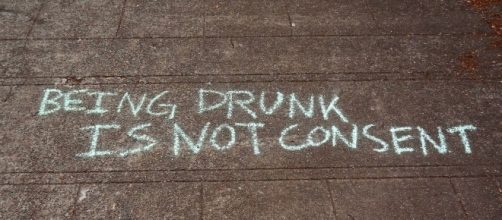Women who have been sexually harassed or assaulted have been writing two simple words on their social media accounts since last Sunday: “Me too.” While seemingly innocuous, those two words have made the Internet a triggering place. Not just for victims and survivors of assault, but anyone who has had to endure the pain caused by it.
It began with actress Alyssa Milano taking to Twitter, saying: “If all the women who have been sexually harassed or assaulted wrote ‘Me too’ as a status, we might give people a sense of the magnitude of the problem.”
And the problem is much larger than anyone ever anticipated.
A week later, I have stopped counting the 'me toos' in my Facebook and Twitter timelines. Some women aren't even sure that their experience counts as sexual assault or not because it's become all too normalised. The hashtag became a quiet roar of the beast that lies beneath our everyday mundane existence.
One tweet has brought together 1.7 million voices from 85 countries. Standing side by side, together, our movement will only grow. #MeToo
— Alyssa Milano (@Alyssa_Milano) October 24, 2017
But the issue here should not just be about women who have experienced sexual assault; it needs to extend to men who have been part of the problem. For every "me too", there is obviously a man - or several men - behind it, having done the assaulting.
But all we hear are crickets. It’s almost as if they don’t want to admit that they’re part of the problem.
Many are of the belief that men should play no part in the dialogue about women's rights as it diverts the conversation from the plight of women to be about men. However, in this case, it's not so straightforward. Men are the main cause of this entire movement, and it's impossible to have these conversations without men owning up for their actions - or even inactions - surrounding sexual assault.
To all who harassed or abused someone & are feeling afraid by the power of #metoo:
— Najwa Zebian (@najwazebian) October 23, 2017
It’s nothing compared to the fear we had saying #metoo
If men are truly serious about dealing with toxic masculinities that give rise to and sustain violence against women, men really need to engage with how they have been socialised.
It's not a few "bad apples". The magnitude of #MeToo shows explicitly that the vast majority of men are either involved and/or complicit in everyday sexism, and just how difficult it seems for men to say the words: "That's not cool, bro."
Involvement is in the obvious. It's in the catcalling, the groping, the bullying into her giving you her number, the grinding on the dancefloor, and the outward sexual behaviour that makes women uncomfortable. That barely scratches the surface of what women have had to endure.
Complicity is the silence and letting other men get away with it. It's the silence in the locker room when the guys are comparing conquests. It's the eye-roll when women talk about being afraid of going out at night.
It's the glance to the floor when you know that your mate has bruises on his knuckles from beating his girlfriend. It's the shrug when someone tells a sexist joke. It's being the bystander but not really stopping the sexist behaviour, rape culture, and general misogyny.
Isn't it strange how every woman knows someone who's been sexually harassed but no man seem to know any harasser?
— Zara Larsson (@zaralarsson) October 17, 2017
We talk about the number of women who were assaulted. Never the number of men who assaulted women. We talk about women being raped. Never about the men who rape women. We are always putting women at the forefront of discussions about sexual violence, but never hold men to account and acknowledging that they are the problem.
It's about time we started. Just as we tell women how not to get raped, we should start by recognising that men have choices beyond culturally prescribed norms of masculinity and are not victims of their gender.
So if we are to invert the question to read: "Have you sexually harassed women in your life, or stood by while it happened?" I would like to see what men answer to this. Because the beast is waking. And it's angry.
Oh, and by the way, me too.


